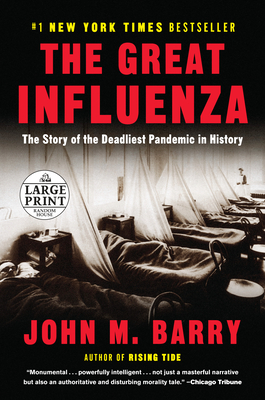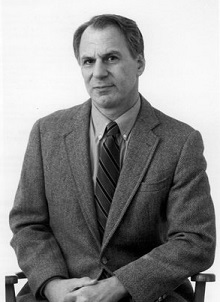

 Random House Large Print Publishing
Random House Large Print Publishing
The Great Influenza: The Story of the Deadliest Pandemic in History


Key Metrics
- John M Barry
- Random House Large Print Publishing
- Paperback
- 9780593346464
- 9.1 X 6.1 X 2 inches
- 2 pounds
- Medical > History
- English
 Secure Transaction
Secure TransactionBook Description
Barry will teach you almost everything you need to know about one of the deadliest outbreaks in human history.--Bill Gates, GatesNotes.com
Monumental... an authoritative and disturbing morality tale.--Chicago Tribune
The strongest weapon against pandemic is the truth. Read why in the definitive account of the 1918 Flu Epidemic.
Magisterial in its breadth of perspective and depth of research, The Great Influenza provides us with a precise and sobering model as we confront the epidemics looming on our own horizon. As Barry concludes, The final lesson of 1918, a simple one yet one most difficult to execute, is that...those in authority must retain the public's trust. The way to do that is to distort nothing, to put the best face on nothing, to try to manipulate no one. Lincoln said that first, and best. A leader must make whatever horror exists concrete. Only then will people be able to break it apart.
At the height of World War I, history's most lethal influenza virus erupted in an army camp in Kansas, moved east with American troops, then exploded, killing as many as 100 million people worldwide. It killed more people in twenty-four months than AIDS killed in twenty-four years, more in a year than the Black Death killed in a century. But this was not the Middle Ages, and 1918 marked the first collision of science and epidemic disease.
Author Bio
John M. Barry is a prize-winning and New York Times best-selling author whose books have won multiple awards. The National Academies of Sciences named his 2004 book The Great Influenza: The story of the deadliest pandemic in history, a study of the 1918 pandemic, the year's outstanding book on science or medicine. His earlier book Rising Tide: The Great Mississippi Flood of 1927 and How It Changed America, won the Francis Parkman Prize of the Society of American Historians for the year's best book of American history and in 2005 the New York Public Library named it one of the 50 best books in the preceding 50 years, including fiction, nonfiction, and poetry. His books have also been embraced by experts in applicable fields: in 2006 he became the only non-scientist ever to give the National Academies Abel Wolman Distinguished Lecture, a lecture which honors contributions to water-related science, and he was the only non-scientist on a federal government Infectious Disease Board of Experts. He has served on numerous boards, including ones at M.I.T's Center for Engineering Systems Fundamentals, the Johns Hopkins Bloomberg School of Public Health, and the Society of American Historians. His latest book is Roger Williams and The Creation of the American Soul: Church, State, and the Birth of Liberty, a finalist for the Los Angeles Times Book Prize and winner of the New England Society Book Award.
His books have involved him in two areas of public policy. In 2004, he began working with the National Academies and several federal government entities on influenza preparedness and response, and he was a member of the original team which developed plans for mitigating a pandemic by using "non-pharmaceutical interventions"-- i.e., public health measures to take before a vaccine becomes available. Both the Bush and Obama administrations have sought his advice on influenza preparedness and response, and he continues his activity in this area.
He has been equally active in water issues. After Hurricane Katrina, the Louisiana congressional delegation asked him to chair a bipartisan working group on flood protection, and he served on the Southeast Louisiana Flood Protection Authority East, overseeing levee districts in metropolitan New Orleans, from its founding in 2007 until October 2013, as well as on the Louisiana Coastal Protection and Restoration Authority, which is responsible for the statewide hurricane protection. Barry has worked with state, federal, United Nations, and World Health Organization officials on influenza, water-related disasters, and risk communication.
His articles have appeared in such scientific journals as Nature and Journal of Infectious Disease as well as in lay publications ranging from Sports Illustrated to Politico, The New York Times, The Washington Post, Fortune, Time, Newsweek, and Esquire. A frequent guest on every broadcast network in the US, he has appeared on such shows as NBC's Meet the Press, ABC's World News, and NPR's All Things Considered, and on such foreign media as the BBC and Al Jazeera.
Before becoming a writer, Barry coached football at the high school, small college, and major college levels. Currently Distinguished Scholar at Tulane's Bywater Institute and a professor at the Tulane School of Public Health and Tropical Medicine, he lives in New Orleans.
Videos
No Videos
Community reviews
Write a ReviewNo Community reviews